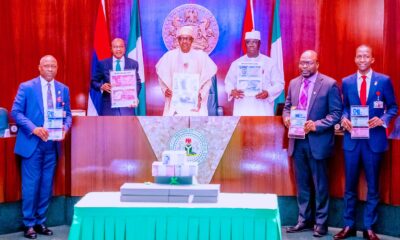Airtel Africa has signed an agreement with under which Qatar Holding LLC, an affiliate of the Qatar Investment Authority (QIA), plans to invest $200 million in Airtel Mobile Commerce BV (“AMC BV”), a subsidiary of Airtel Africa plc (the “Transaction”).
The Transaction values Airtel Africa’s mobile money business at $2.65 billion on a cash and debt free basis. QIA will hold a minority stake in AMC BV upon completion of the Transaction (alongside other minority investors), with Airtel Africa continuing to hold the majority stake. The Transaction is subject to customary closing conditions.
Following the announcement on 18 March 2021 of a $200m investment in AMC BV by TPG’s The Rise Fund, on 1 April 2021 of a $100m investment in AMC BV by MasterCard and the sale of the Group’s telecommunication towers companies in Madagascar and Malawi on 23 March 2021, the Transaction is a continuation of the Group’s pursuit of strategic asset monetization and investment opportunities, and it is the aim of Airtel Africa to explore the potential listing of the mobile money business within four years.
The proceeds from the Transaction will be used to reduce Group debt and invest in network and sales infrastructure in the respective operating countries.
Airtel Africa mobile money services
Operating under the Airtel Money brand, Airtel Africa’s mobile money services is a leading digital mobile financial services platform catering to a large addressable market in Africa (characterised by limited access to formal financial institutions with limited banking infrastructure) and includes mobile wallet deposit and withdrawals, merchant and commercial payments, benefits transfers, loans and savings, virtual card and international money transfers.
Mobile money services are available across the Group’s 14 countries of operation, however in Nigeria the Group offers Airtel Money services through a partnership with a local bank and has applied for its own mobile banking licence. It is the intention that all mobile money operations will be owned and operated by AMC BV.
In our most recent reported results for Q1’22, the mobile money services (corresponding to all the businesses that are intended to be transferred to AMC BV) delivered a strong operational
performance:
Generated revenue of $124m ($496m annualised), and underlying EBITDA of $60m ($240m annualised) at a margin of 48.8%.
Year on year revenue growth for the quarter was 53.7% in constant currency, largely driven by 24.6% growth in the customer base to 23.1 million, and 25.4% ARPU growth.
Growth in transaction value was 64.4% (constant currency) to $14.7bn ($59bn annualised).
Our mobile money business benefits from strong network presence with our core telecom business through the extensive distribution platform of kiosks and mini shops as well as dedicated Airtel Money
branches supplementing our extensive agent network, to facilitate customers’ access to assured wallet and cash.
We have a clear strategy to continue to drive sustainable long-term growth in Airtel Money with a focus on assured float availability, distribution expansion and increased usage cases for our customers.
Last year we added partnerships with Mastercard, Samsung, Asante, Standard Chartered Bank, MoneyGram, Mukuru and WorldRemit to expand both the range and depth of the Airtel Money offerings and to further drive customer growth and penetration.
The profits before tax in the full year ending 31 March 2021 and the value of gross assets as of that date, attributable to the mobile money businesses were $185m and $668m, respectively.
Key elements of the Transaction
Agreement values Airtel Africa’s mobile money business at $2.65bn on a cash and debt free basis.
AMC BV, a subsidiary of Airtel Africa, is the holding company for several of Airtel Africa’s mobile money operations; and it is intended that ultimately it shall own and operate the mobile
money businesses across all of Airtel Africa’s fourteen operating countries once the inclusion of the remaining mobile money operations under AMC BV perimeter is completed.
QIA will invest $200m through a secondary purchase of shares in AMC BV from Airtel Africa. The transaction will close in two stages: $150m will be invested at first close, subject to customary closing conditions, including necessary regulatory filings, with $50m to be invested at second close once further transfers of certain mobile money operations and contracts into the AMC BV perimeter have been completed.
The Transaction first close is expected in August. From first close, QIA will be entitled to appoint a director to the board of AMC BV and to certain customary information and minority protection rights.
Comment on the deal, Raghunath Mandava, CEO of Airtel Africa, said “With today’s announcement we are pleased to welcome QIA as a prospective investor in our mobile money business, joining both Mastercard and TPG’s The Rise Fund as a further partner to help us realise the full potential from the substantial opportunity to bank the unbanked across Africa.”
Mansoor bin Ebrahim Al-Mahmoud, CEO of QIA, added that “We are delighted to build on our support of Airtel Africa in promoting financial inclusion to the large and growing population of Sub-Saharan Africa. Airtel Money plays a critical role in facilitating economic activity, including for customers without access to traditional financial services. We firmly believe in its mission to expand these efforts over the coming years.”


 Forex3 weeks ago
Forex3 weeks ago


 Naira2 weeks ago
Naira2 weeks ago
 Billionaire Watch2 weeks ago
Billionaire Watch2 weeks ago






 Naira3 weeks ago
Naira3 weeks ago






 Naira2 weeks ago
Naira2 weeks ago


 Naira1 week ago
Naira1 week ago




 Naira4 weeks ago
Naira4 weeks ago






 Naira1 week ago
Naira1 week ago















